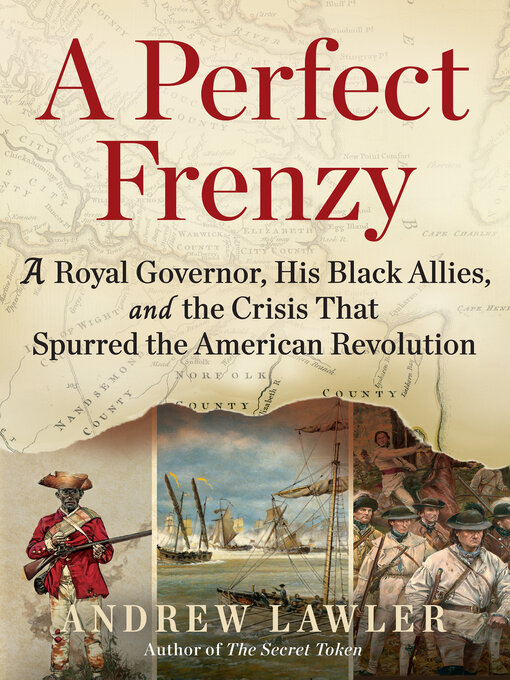From the nationally bestselling author of The Secret Token, the largely untold story of rebellion in Virginia that will forever change our understanding of the American Revolution
As the American Revolution broke out in New England in the spring of 1775, dramatic events unfolded in Virginia that proved every bit as decisive as the battles of Lexington and Concord and Bunker Hill in uniting the colonies against Britain. Virginia, the largest, wealthiest, and most populous province in British North America, was led by Lord Dunmore, who counted George Washington as his close friend. But the Scottish earl lacked troops, so when patriots imperiled the capital of Williamsburg, he threatened to free and arm enslaved Africans—two of every five Virginians—to fight for the Crown.
Virginia's tobacco elite was reluctant to go to war with Britain but outraged at this threat to their human property. Dunmore fled the capital to build a stronghold in the colony's largest city, the port of Norfolk. As enslaved people flocked to his camp, skirmishes broke out. "Lord Dunmore has commenced hostilities in Virginia," wrote Thomas Jefferson. "It has raised our countrymen into a perfect frenzy." With a patriot army marching on Norfolk, the royal governor freed those enslaved and sent them into battle against their former owners. In retribution, and with Jefferson's encouragement, furious rebels burned Norfolk to the ground on January 1, 1776, blaming the crime on Dunmore.
The port's destruction and Dunmore's emancipation prompted Virginia's patriot leaders to urge the Continental Congress to split from Britain, breaking the deadlock among the colonies and leading to adoption of the Declaration of Independence. Days later, Dunmore and his Black allies withdrew from Virginia, but the legacy of their fight would lead, ultimately, to Abraham Lincoln's 1863 Emancipation Proclamation.
Chronicling these stunning and widely overlooked events in full for the first time, A Perfect Frenzy offers a striking new perspective on the American Revolution that reorients our understanding of its causes, highlights the radically different motivations between patriots in the North and South, and reveals the seeds of the nation's racial divide.

